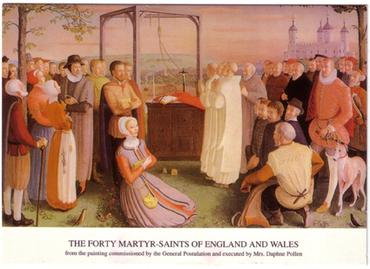
A few months ago I decided on a whim to sign onto Ancestry.com to see if I could learn anything more about my family history. I've always thought our family to be very small and without much in the way of "roots."
The Dewey lineage can be traced with some degree of accuracy, according to ancient Saxon Chronicles, to the Saxon cult hero, who is almost a myth, called variously Vothinn, Othinn, Odin, Bodo and Woden, king of the West Saxons during 256-300 A.D. This king Woden, the god of war of the southerly Germans, is described as the great-great-grandfather of the bugaboos of English history, Hengist and Horsa, brothers, freebooters and pirates. The Saxon annuals relate that Hengist was king of the Saxons and died between 474 and 495 A.D. and was the first king of Kent.
From Garber-Zent Genealogy. The author notes: This material is based mainly on the account of the royal ancestry of Admiral Dewey as reported in "The Life of George Dewey, Admiral, US Navy, and the Dewey Family History", by Adelbert Dewey, 1898.
Not content with researching my family history alone, I also found out much information for my husband on his family, the Williams, Van Akens, and Barlows. The Barlows were from Utah, and Mark knew much about their history in America, but nothing about their roots in England. It was exciting to present him with info such as this:
The Manor of Barlow in Chorlton-cum-Hardy, Manchester, was long held by a family who adopted that surname, with one Thomas de Barlow having been in residence there from about 1200. By 1389 Roger de Barlow was in possession not only of lands in Barlow, but others in Chorlton, Hardy, and Withington.
The Barlows had built Barlow Hall, as well as a small half-timbered chapel, on lands which they had held in the area since the 13th century. In 1567 Alexander Barlow was Lord of the Manor, and unfortunately for him, was among many local Manchester Catholics who fell foul of the religious changes made by Queen Elizabeth I, was committed to prison and died in custody on 24 August 1584.
A notable member of the family was Edward Barlow, later known as Saint Ambrose Barlow, a famous local Catholic martyr. Ambrose Barlow, who had done missionary work in Lancashire, was several times imprisoned, and was finally executed for his priesthood on the instructions of Parliament on 10 September 1641 at Lancaster. (Source: http://www.manchester2002-uk.com/history/old-families2.html)

Ambrose Edward Barlow was hanged, dismembered, quartered and boiled in oil for his religious beliefs. He was one of the Forty Martyr-Saints of England and Wales and his feast day is Oct. 25th. (see painting above).
Ironically, my 6th great grandmother, Hannah Perry (from Admiral Perry's family), was a direct descendant of Sir William Wallace, a Scottish hero from the 13th century.
William Wallace is one of Scotland's greatest national heroes, undisputed leader of the Scottish resistance forces during the first years of the long and ultimately successful struggle to free Scotland from English rule at the end of the 13th Century.
http://www.electricscotland.com/history/articles/william_wallace.htm
He was also hanged, dismembered, quartered, and had his body parts put on display by the British. Today, there is a huge tower known as Wallace tower, in honor of Sir William Wallace.
(The Wallace Monument, near Stirling, Scotland. Photo by Finlay McWalter, of Scotland, on Wikipaedia.)

Hannah (1728-1795) lived in New Jersey during the American Revolution. Another member of Ancestry.com posted this family story: Both her husband, Aaron and son, Ephraim were soldiers in the Revolutionary War. Son Aaron was a Minuteman. Hannah plowed all one day while a battle was going on in which both Aaron and Ephraim were fighting. She could hear the cannons roar, but told the children it was thunder. She herself, was too distressed to eat.
You can read a transcript of Clyde E. Williams, Sr. (Mark's paternal grandfather) on "This I Believe" (we have the vinyl LP with the original recording). Mark's maternal grandfather, William Van Aken, was the mayor of Shaker Heights, Ohio, for 40 years.
I also searched information for my children on their father's side (Merlin and Lyon). (There was little on the Merlins, but much on the Lyon side of my sons’ family tree, including the fact that the Lyon ancestors were Loyalists or “Torries” who favored the British crown during the American Revolution. After the Revolution, they settled near Kingston, Ontario, on lands granted to them by the King of England.
The second full day of my search, I called my mother early in the morning, tears in my eyes and my throat choking up. "I wish Dad could be here to go through this information with me. He would have loved finding out about his ancestors."


































